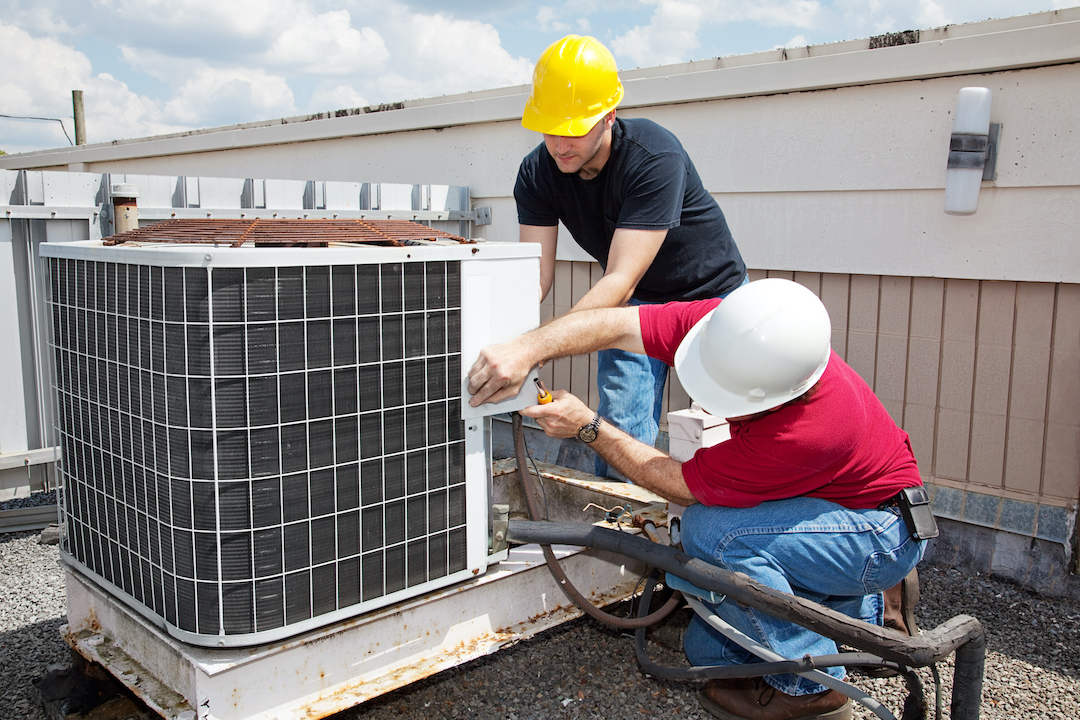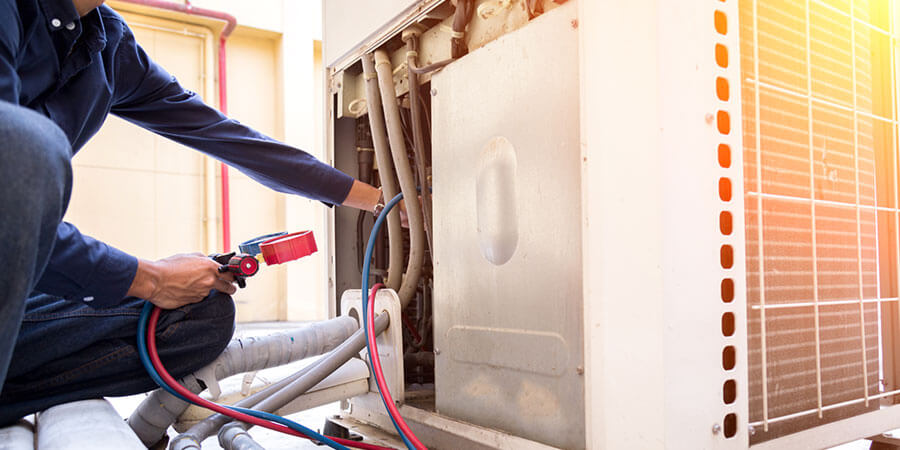Smart Strategies to Make the Most of Your New furnace replacement
Smart Strategies to Make the Most of Your New furnace replacement
Blog Article
Selecting Between a Heatpump and Heating System: Secret Factors To Consider for Your Heating And Cooling Requirements
When assessing home heating options for a/c needs, the choice between a warmth pump and a heating system can be complicated. Each system uses distinctive benefits customized to specific environments and energy performance goals. Comprehending these differences is vital for making an educated selection. Secret variables such as installation prices and ecological effect further make complex the selection procedure. Which option truly lines up with one's convenience and sustainability choices? The following areas will explore these factors to consider thoroughly.
Understanding Warm Pumps: Exactly How They Work and Their Advantages
While many property owners think about numerous home heating choices, recognizing how heatpump feature and their advantages can substantially affect their decision. Warmth pumps operate by transferring heat as opposed to producing it. In the wintertime, they extract heat from the outdoors air or ground and move it indoors, while in the summer season, they reverse this procedure, cooling the home by removing heat outside. This twin functionality makes them functional for year-round climate control.One of the primary advantages of heat pumps is their power effectiveness. They make use of significantly much less electrical energy compared to standard furnace, potentially leading to lower energy costs (heat pump installation ooltewah tn). Furthermore, heat pumps have a smaller sized carbon impact, making them an eco-friendly selection. They additionally require much less upkeep than traditional systems, adding to long-term cost savings. On the whole, understanding the technicians and advantages of heat pumps can assist house owners make notified decisions concerning their heating and cooling down demands
Checking Out Heating Systems: Types, Procedure, and Benefits
Heating systems come in various types, including gas, electrical, and oil models, each with distinct functional systems. Understanding these distinctions is crucial, as they influence effectiveness and home heating efficiency. In addition, heaters provide numerous advantages, such as consistent warmth result and dependability in colder environments.
Kinds of Heaters
Heater can differ considerably in layout and operation, with heaters being a popular option among property owners. There are numerous kinds of heating systems, each using different gas sources and technologies. Gas heating systems are common, leveraging gas to generate warm effectively. Electric heaters, on the other hand, use electrical resistance to create heat, often preferred for their simple setup. Oil heaters, while less common, work in areas with restricted gas access (heat pump installation ooltewah tn). In addition, condensing heaters optimize energy performance by recording and reusing exhaust gases. Each type runs through a system of heat exchangers and ductwork to disperse cozy air throughout a home. Recognizing the differences between these heating system types is essential for notified cooling and heating choices
Benefits of Heating systems
For house owners looking for dependable warmth during cool months, the advantages of furnaces are considerable. Heaters offer regular home heating, making sure also temperature levels throughout the home. They are particularly efficient in extreme chilly, frequently outmatching heatpump in icy problems. Different kinds, consisting of gas, electrical, and oil furnaces, provide versatility to meet varied needs and preferences.Furnaces also tend to have lower preliminary setup expenses contrasted to warmth pumps, making them a much more accessible option for many. Their robust layout contributes to a longer life-span, with lots of devices lasting over 15 years with correct upkeep. In addition, contemporary heaters are frequently outfitted with innovative modern technology for enhanced performance, which can cause decreased energy costs. On the whole, heaters continue to be a reliable choice for reliable home heating.

Power Efficiency: Contrasting Warmth Pumps and Furnaces
When contrasting energy performance in between warmth pumps and heaters, the Seasonal Energy Effectiveness Proportion (SEER) plays a crucial duty in identifying performance. In addition, a functional cost analysis discloses the lasting financial implications of each system. Comprehending these aspects can direct property owners in making educated decisions concerning their home heating solutions.
Seasonal Power Efficiency Ratio
Power performance plays a necessary function in the decision-making process between heatpump and heaters, particularly when considering the Seasonal Power Efficiency Ratio (SEER) This metric steps the cooling effectiveness of heatpump over a whole air conditioning period, supplying a standardized method to assess performance. Higher SEER rankings indicate higher energy performance, converting to reduced power intake and lowered energy costs. In comparison, furnaces are commonly examined using the Annual Gas Utilization Efficiency (AFUE) rating, which reflects home heating efficiency. When comparing these two systems, homeowners ought to focus on SEER scores for warmth pumps, as they straight effect general energy cost savings and ecological sustainability. A thorough understanding of SEER can especially influence the lasting complete satisfaction and cost-effectiveness of the picked cooling and heating service.
Operational Expense Evaluation
Understanding the operational prices connected with heatpump and heating systems is crucial for homeowners assessing their choices. Heatpump generally offer higher energy effectiveness, transforming electric power right into warmth with very little waste. This leads to lower monthly energy bills, specifically in modest environments. Conversely, traditional heaters, especially gas versions, may have reduced ahead of time costs however can incur higher operational expenses over time due to sustain rates and effectiveness ratings.Moreover, heatpump can work as both home heating and cooling systems, potentially minimizing the need for different HVAC units. While initial financial investments for heatpump might be greater, their lasting cost savings in power effectiveness can make them an extra cost-efficient selection for lots of households. Mindful evaluation of local energy prices is important to identify the most effective option.
Installation Costs: What to Anticipate for every Heating System
Installation prices for home heating systems can differ considerably in between warm pumps and heating systems, affecting property owners' choices. Warm pumps generally have greater in advance installment prices, usually varying from $3,500 to $8,000, depending upon the device size and complexity of installment. This consists of the outside device, interior handling system, and required ductwork adjustments. Conversely, heating systems have a tendency to have reduced first prices, balancing between $2,500 and $6,000, which can be appealing for budget-conscious home owners. Setup costs can boost if substantial ductwork is required.Moreover, the option of gas type for heating systems-- natural gas, lp, or electrical-- can likewise impact setup prices. While heatpump use power performance, their preliminary financial investment might discourage some buyers. Ultimately, evaluating setup prices alongside lasting cost savings and efficiency will assist house owners in making notified choices about their heater.
Climate Factors To Consider: Which System Executes Better in Your Location
Just how do climate conditions influence the effectiveness of home heating systems? The efficiency of warmth pumps and heaters can differ considerably depending upon the regional climate. In modest environments, heatpump excel by effectively moving warm from the outside air, making them an energy-saving option. Their efficiency decreases in extremely chilly temperature levels, where they may battle to draw out enough warmth. On visit this site right here the other hand, furnaces, specifically gas designs, give trusted and consistent warm no matter of outdoor conditions, making them more suitable in colder regions.In areas that experience milder wintertimes, warm pumps can operate successfully year-round, giving both home heating and air conditioning. On the other hand, areas with rough winters months usually benefit from the robustness of heating systems. Ultimately, understanding the neighborhood environment is vital when deciding between a heatpump and a heating system, as it directly affects their operational efficiency and general performance.
Upkeep Demands: Long-Term Care for Warmth Pumps vs. Furnaces
While both warm pumps and heating systems call for regular upkeep to assure peak efficiency, their certain needs and treatment routines differ substantially. Furnaces normally require less constant attention, with annual inspections sufficing to look for gas leakages, tidy filters, and evaluate overall capability. Their simpler layout commonly permits uncomplicated repairs.In contrast, warm pumps require biannual upkeep because of their double function in heating & cooling. This consists of cleansing coils, inspecting cooling agent levels, and guaranteeing that both the indoor and outdoor devices work at their finest. Additionally, warm pump maintenance usually includes even more detailed parts, making specialist maintenance essential.Neglecting maintenance can cause diminished efficiency and boosted energy expenses for both systems. Eventually, property owners ought to consider these long-lasting care needs when picking between a heatpump and a heater, as positive maintenance can extend the lifespan and performance of either system significantly.
Ecological Influence: Selecting a Lasting Heating Alternative
The ecological effect of furnace is a critical analysis for home owners looking for lasting choices. Heat pumps are typically more energy-efficient than conventional furnaces, as they transfer heat instead than produce it, significantly minimizing carbon emissions. By making use of eco-friendly energy resources, such as geothermal or air-source heatpump, property owners can further decrease their environmental footprint.On the other hand, all-natural gas furnaces give off greenhouse gases and add to air pollution, though they often supply greater heat output. Improvements in innovation have actually led to the growth of high-efficiency heating systems that decrease emissions.Ultimately, choosing a heating system involves evaluating efficiency against ecological effect. Property owners are encouraged to assess local power resources and motivations for sustainable systems, ensuring a selection that more info here lines up with both personal comfort and ecological obligation. The decision influences not just prompt comfort yet likewise long-term sustainability and environmental health.
Frequently Asked Concerns
How Much Time Do Heat Pumps and Furnaces Generally Last?
The lifespan of heat pumps normally ranges from 15 to 20 years, while heaters can last between 15 to three decades. Normal upkeep substantially impacts their long life and performance in giving home heating options.
Can I Utilize a Heatpump in Exceptionally Cold Climates?
Warm pumps can operate in extremely cold climates, yet their effectiveness decreases as temperatures decrease. In such conditions, additional heating sources might be necessary to preserve comfortable indoor temperature levels and assure peak performance.

What Is the Noise Degree of Warmth Pumps Versus Furnaces?
The noise levels of heatpump and furnaces differ substantially. Typically, heat pumps run even more silently than typical heating systems, making them more effective for those conscious seem, while heating systems might produce louder functional sounds throughout home heating cycles.
Are Warmth Pumps Suitable for Both Cooling And Heating?
Heatpump are indeed appropriate for both home heating and air conditioning (ductless mini splits). They work by transferring warm, supplying efficient temperature level control year-round, making them a flexible choice for home owners looking for an all-in-one a/c option
What Dimension Heating System Do I Required for My Home?
Establishing the proper size heater for a home requires reviewing variables such as square video footage, insulation top quality, neighborhood environment, and the home's layout. Consulting a specialist can guarantee a precise assessment and excellent convenience. Warmth pumps usually offer greater energy efficiency, transforming electric energy into warm with very little waste. In modest environments, warmth pumps stand out by successfully moving warm from the outdoors air, making them an energy-saving choice. Alternatively, heating systems, specifically gas versions, offer constant and trustworthy heat regardless of exterior problems, making them preferable in chillier regions.In locations that experience milder winters, warmth pumps can her response run efficiently year-round, giving both heating and cooling. Warm pumps are normally extra energy-efficient than standard heating systems, as they move heat rather than create it, substantially minimizing carbon emissions. By using eco-friendly energy resources, such as air-source or geothermal warmth pumps, homeowners can even more decrease their eco-friendly footprint.On the other hand, natural gas heating systems produce greenhouse gases and contribute to air pollution, though they usually offer higher heat output.
Report this page